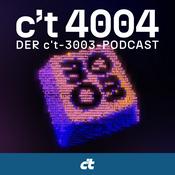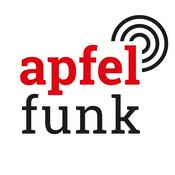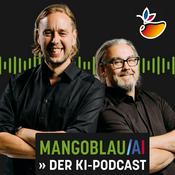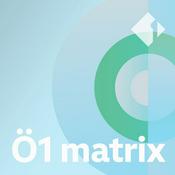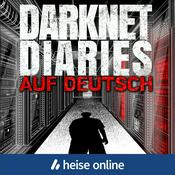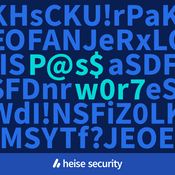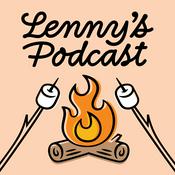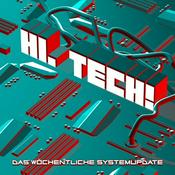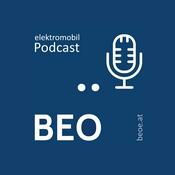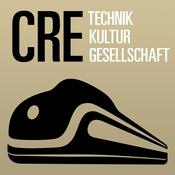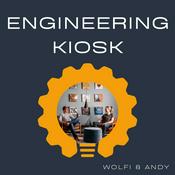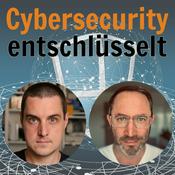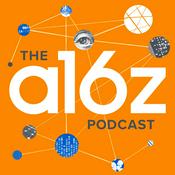7 Episoden
- This episode, we're joined by Ernest Kissiedu, who is the community lead of the Rust London user group as well as a co-founder of the DevX Initiative, which empowers current and would-be Rust contributors through research, workshops, and sponsorship.
Ernest tells the story of how he fell in love with Rust, how he got into organizing one of the largest local Rust user groups, as well as how he started the DevX Initiative. He also opens up about the challenges he faces running such a unique initiative, along with the possible shiny future of Rust that he hopes the DevX Initiative will help bring to fruition.
Blog post announcing that the DevX Initiative is now independent: https://medium.com/@thedevxinitiative/the-independent-devx-initiative-3aff64fcf3dc.
You can find the DevX Initiative on Twitter @DevXInitiative.
You can find the Rust London user group on Twitter @RustLondon_.
You can send us an email at buildingwithrust AT gmail DOT com or find us in the Rustacean Station Discord server.
Timestamps
00:26 - Welcome
00:35 - Ernest's intro
01:26 - How Ernest got into Rust
09:02 - Rust game development in the early days
11:46 - Rust's community is its most compelling feature
13:28 - Ernest's journey to becoming community lead of the Rust London user group
22:30 - How Ernest co-founded the DevX Initiative
29:00 - The DevX Initiative going independent
34:34 - DevX and the Rust Foundation are both working towards the same goal
38:00 - Ernest's personal projects
43:42 - Contributing in ways other than coding
48:16 - Widening the definition of what it means to be a 'contributor'
50:26 - Summarizing and wrapping up
53:41 - Ernest's sign-off
55:16 - Outro - Nick Cameron sat down to chat with us about his Rust journey, including his experiences working as a member of the Rust core team back in the language's pre-1.0 days. He left the core team and open source contributor-ship in 2019 due to his growing family, but has since returned to full-time open source work; he spends most of his time now consolidating the different pillars that make up Rust's async ecosystem. Through it all, he has learned how to effectively juggle open source work with his priorities as a parent and family man.
Nick's website is https://ncameron.org. You can follow him on Twitter @nick_r_cameron.
The Rust 2021 annual survey results blog post: https://blog.rust-lang.org/2022/02/15/Rust-Survey-2021.html
Nick's blog post on the portable and interoperable async Rust initiative: https://www.ncameron.org/blog/portable-and-interoperable-async-rust/
Nick's Rust in 2022 blog post: https://www.ncameron.org/blog/rust-in-2022-2/
You can send us an email at buildingwithrust AT gmail DOT com or find us in the Rustacean Station Discord server.
Timestamps
1:09 - Nick's intro
2:04 - Nick's history with Rust
7:14 - Memories from working on Rust pre-1.0
8:48 - Dynamically-sized types have some rough edges
12:31 - Reflecting on the Rust core team
17:43 - The portable and interoperable async initiative
31:16 - How much should the Rust standard library support async programming?
35:47 - Returning to full-time open source work
46:08 - Juggling open source work and parenting
55:00 - Nick's sign-off
57:28 - Outro - We sat down with Josh Triplett, co-lead of the Rust Language team, to chat about his journey into Rust contributorship and what considerations he makes when iterating on a language as widely-used as Rust. We also discuss Josh's ideal build system, as well as what changes he thinks the Rust language and community need to make in order for Rust to stay relevant well into the future.
If you're interested in finding out more about the build system Josh is building, head on over to https://buildit.dev.
The Lang team's decision-making process is documented over at https://lang-team.rust-lang.org/decision_process.html.
Josh's homepage is located at https://joshtriplett.org. You can find him on Twitter @josh_triplett.
You can send us an email at buildingwithrust AT gmail DOT com or find us in the Rustacean Station Discord server.
Timestamps
0:40 - Welcome
0:52 - Josh's intro
1:29 - How Josh is spending his days
3:05 - Josh's initial experiences playing with Rust
7:14 - How Josh got into contributing to Rust
8:42 - Explaining some of Rust's pre-1.0 features
11:43 - Why do some features get stabilized and others don't?
13:12 - Important language design considerations
17:42 - Most memorable moments working on the Lang team
23:45 - Difficulties to working on the Lang team
25:51 - How do you keep your Rust work sustainable?
30:30 - What are the most important things in Rust that need working on?
34:12 - Advice for those looking to do more high-impact but less visible work
37:21 - Writing code is not the only way to contribute to Rust
39:34 - Why build a new build system?
50:09 - Long-term changes to the Rust language and community you'd like to see
1:05:29 - What fictional world would Josh most like to visit?
1:11:58 - Josh's sign-off
1:13:15 - Outro - We chat with Leonora Tindall, one of the co-authors of the 2nd edition of Programming Rust, about her experiences working on the book, the various roles she has worked in using Rust, and about the state of academic computer science education.
Nora's blog can be found at https://nora.codes/. Her Twitter handle is @NoraDotCodes.
Visit https://play.google.com/store?code=3MNQ2X1ZPV6TT to receive 40% off the full price of Programming Rust 2nd Edition.
You can send us an email at buildingwithrust AT gmail DOT com or find us in the Rustacean Station Discord server.
Timestamps
0:40 - Welcome
1:12 - Nora's intro
1:58 - Thoughts on podcasts in the Rust community
4:12 - Are you ok with listening to your own recorded voice?
5:13 - Nora's work history
8:29 - Working on the second edition of Programming Rust
12:00 - Developing empathy as educators
15:40 - Keeping the Mandelbrot renderer project from the first edition
17:30 - Who should you buy the second edition of Programming Rust?
24:31 - Learning programming should be more fun
26:37 - Working on cancer discovery at CancerIQ
33:23 - Working on edge delivery at Fastly
35:18 - Being California transplants to the midwest
36:37 - Nora's unconventional college experience
37:58 - Shuffleboard as a team-building activity
38:45 - Thoughts on academic computer science education
49:12 - What fictional world would you most like to visit?
55:01 - Nora's sign-off
56:09 - Outro - We sat down with Ralf Jung who is, at the time of this recording, a post-doctoral researcher at the Max Planck Institute for Software Systems (MPI-SWS). Ralf is part of the RustBelt project, which seeks to define and develop rigorous formal foundations for the Rust programming language.
We talked with Ralf about GhostCell, a technique for separating permissions from data in Rust that opens up possibilities and alternative strategies when it comes to working around Rust's "aliasing XOR mutability" rules, why there seems to be such a large gap between academic programming languages and "mainstream" programming languages, as well as what makes for a good PL researcher.
Ralf blogs about Rust, and other topics, at https://www.ralfj.de/blog/.
matthieu-m's Ghost Collections crate is referenced during the show and can be found at https://github.com/matthieu-m/ghost-collections.
Send us an email at [email protected] to suggest cool people or projects in the Rust ecosystem you'd like us to have on the show!
Weitere Technologie Podcasts
Trending Technologie Podcasts
Über Building with Rust
Chats with folks who work with and within the Rust programming language.
Podcast-WebsiteHöre Building with Rust, Ö1 Digital.Leben und viele andere Podcasts aus aller Welt mit der radio.at-App

Hol dir die kostenlose radio.at App
- Sender und Podcasts favorisieren
- Streamen via Wifi oder Bluetooth
- Unterstützt Carplay & Android Auto
- viele weitere App Funktionen
Hol dir die kostenlose radio.at App
- Sender und Podcasts favorisieren
- Streamen via Wifi oder Bluetooth
- Unterstützt Carplay & Android Auto
- viele weitere App Funktionen


Building with Rust
Code scannen,
App laden,
loshören.
App laden,
loshören.


